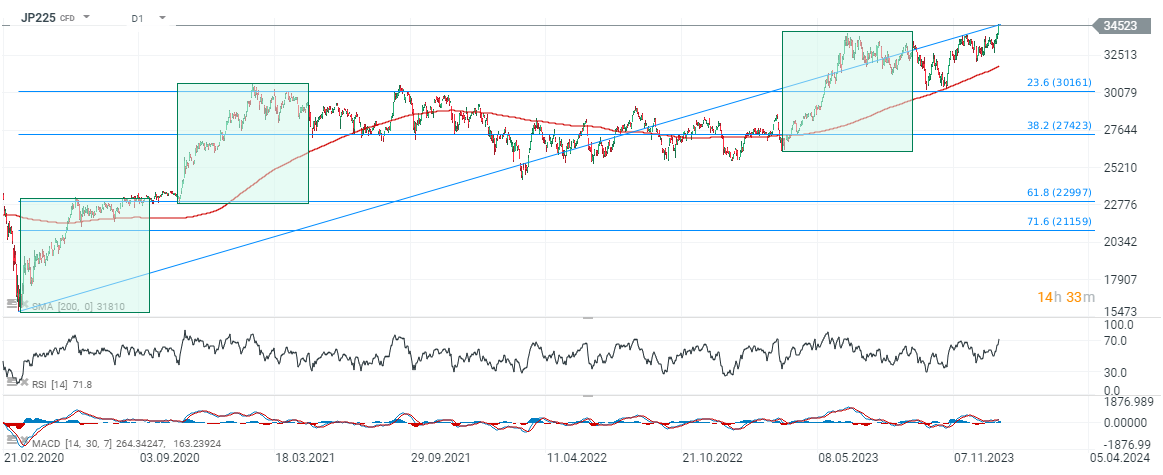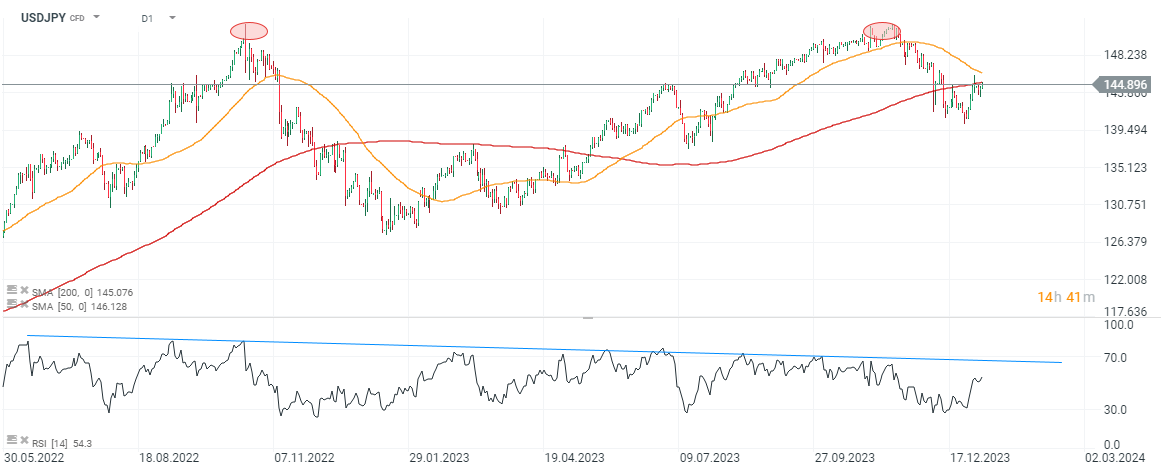Japan's main indices Nikkei 225 (JP225) and Topix climbed to new highs, unseen since 1990, despite noticeably weak sentiment during the Asian session. The upward trend in shares of Japanese exporters is supported by the depreciation of the Japanese yen. Markets expect that exporters will see an additional premium from the favorable currency effect.
Japanese stock market strategists at J.P. Morgan have indicated that the trend of the yen's depreciation against the dollar may continue. The markedly lower pace of wage growth for Japanese workers may cool the possible more 'hawkish' sentiment of the Bank of Japan, which still has not decided to tighten its ultra-low monetary policy. As a result, the yen may weaken further, benefits Japanese equity benchmarks.
JP225 charts and USDJPY (D1 interval)
If the scale of the previous upward impulse (green squares) remain and continue 1:1, a rise to the vicinity of 37,000 points is not excluded. The index has maintained support at the SMA200, which still marks the uptrend (currently around 32,000 points). 
Source: xStation5
On the chart, we see a bearish double peak formation near 150, but the bulls are trying to test the simple moving average (SMA200, red line). Overcoming the 145 level, could indicate a continuation of the JPY's downward trend and a strengthening of the USDJPY, which is gaining more than 0.4% today.

Source: xStation5
Daily summary: Alphabet shares support sentiments on Wall Street 🗽Oil, precious metals and crypto slide
Critical Metals at the center of speculation around Greenland 🔎
US Open: Nasdaq continue to climb📈Intel and Eli Lilly stocks surge
Chart of the day: CHN.cash (07.01.2026) China's rally hits the wall 📉 🇨🇳


